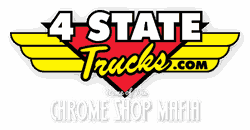Semi-Truck Engine Parts
Get Quality Semi Truck Engine Parts
Your truck’s engine is the heart of your business. When it’s running right, you’re making money. When it’s not, you’re losing time and profits. That’s why 4 State Trucks offers the semi truck engine parts you need to keep your rig on the road and working hard. We stock the critical components that solve real problems for real drivers. Whether you’re fighting fuel system issues, engine cooling problems, or just normal wear and tear, the right replacement parts can mean the difference between staying ahead—or getting left behind.- Boost performance and efficiency: Upgrading worn components helps your engine breathe better, burn cleaner, and run stronger.
- Protect your investment: Durable parts cut down on wear, extend engine life, and help you avoid expensive breakdowns.
- Save time and money: Easy-to-install designs mean faster repairs and less time off the road.
- Stay ready for every mile: Quality parts give you the confidence to tackle tough loads, long hauls, and everything in between. It’s not just about replacement—it’s about protecting your truck, your schedule, and your bottom line.
Best Features of Our Heavy Duty Truck Engine Parts
- Built tough for heavy-duty commercial use.
- Fits a wide range of semi truck makes and models.
- Helps cut downtime and avoid major repairs.
- Fast shipping and expert support when you need it.
Shop Commercial Engine Parts at 4 State Trucks
Stay ahead of engine problems before they cost you. Shop at 4 State Trucks today and keep your semi-truck’s engine, fuel, and even exhaust system running at prime capacity.Frequently Asked Questions About Semi-Truck Engine Parts
What engine parts are compatible with my specific truck model and year?
Engine part compatibility varies significantly between truck manufacturers, models, and production years. For accurate fitment, you'll need your engine serial number and model information (found on the engine data plate), along with your truck's VIN. Common engine models include Caterpillar C15/C13, Cummins ISX/N14, Detroit DD15/Series 60, and Paccar MX-13.
How difficult is it to install engine components like water pumps, turbochargers, or EGR valves?
Installation difficulty varies by component and your mechanical experience. Basic items like air filters, belts, and thermostats typically require standard tools and 30-60 minutes. Complex components like turbochargers, EGR valves, or fuel injectors often require specialized tools, diagnostic equipment, and 2-8 hours of labor. Many drivers handle oil coolers, water pumps, and sensors themselves with proper service manuals. For critical components affecting emissions or requiring ECM programming, professional installation is recommended to maintain warranties and ensure proper operation.
What's the difference between OEM and aftermarket engine parts in terms of quality and longevity?
OEM parts are manufactured to original equipment specifications and typically offer the longest service life and exact fit. Quality aftermarket parts from reputable manufacturers like Dorman, PAI, often match OEM performance at 20-40% lower cost. Budget aftermarket options may save 50-70% but often have shorter lifespans and limited warranties. For critical components like injectors or turbochargers, OEM or premium aftermarket is recommended. For maintenance items like filters, gaskets, and hoses, quality aftermarket parts provide excellent value.
Which engine parts should I keep as spares to avoid roadside breakdowns?
Essential spare parts include serpentine belts, coolant hoses (especially the lower radiator hose), thermostats, fuel filters, and a complete set of sensors (coolant temp, oil pressure, boost pressure). Many drivers also carry a spare water pump, alternator, and starter due to their failure frequency. For emissions-equipped trucks (2007+), having a spare EGR valve gasket and DPF pressure sensors can prevent costly downtime. Keep manufacturer-specific items like turbo boost hoses and intercooler boots that aren't readily available at general parts stores. Total investment for a basic spare parts kit typically runs $500-1500.
How can I tell if an engine part is failing before it causes major damage?
Early warning signs vary by component. Water pumps show coolant leaks, wobbling pulleys, or grinding noises. Turbochargers exhibit excessive smoke, oil consumption, or whistling sounds. Injectors cause rough idle, white/black smoke, or poor fuel economy. EGR valves trigger check engine lights, rough running, or excessive soot buildup. Oil coolers show oil in coolant or dropping oil pressure. Regular oil analysis (every 15,000 miles) can detect bearing wear, coolant intrusion, or fuel dilution before catastrophic failure. Installing aftermarket gauges for boost pressure, EGT, and oil temperature provides real-time monitoring of engine health.



